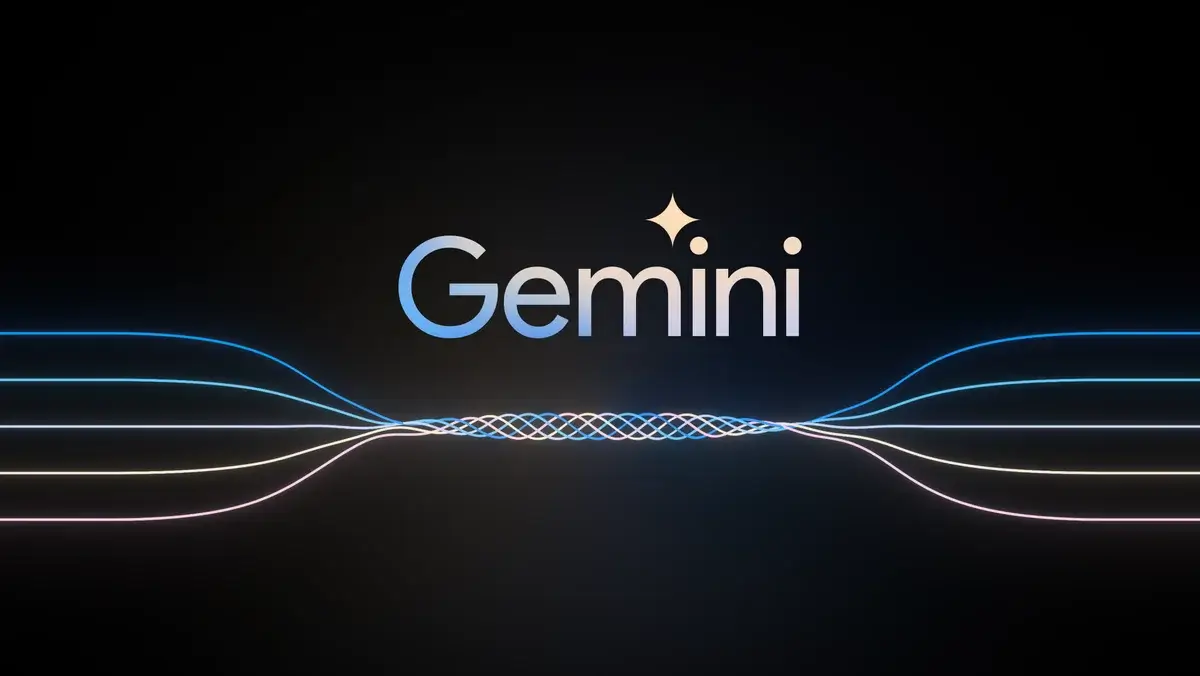In my experience testing AI writing tools, the competition between Gemini and ChatGPT always seemed interesting.
Both are powerful AI models that claim to help users create high-quality content quickly and efficiently.
As someone who has worked with both extensively, I wanted to see which tool truly delivers the best results when it comes to writing content.
Both tools have their strengths, and depending on the task at hand, each can excel in different areas.
However, throughout my experience, I noticed key differences in how they handle writing tasks, which made me lean more toward one over the other.
Let’s break down what these tools offer and see how they compare.
What is Gemini?
Gemini, developed by Google, is an AI tool designed to create precise and efficient content, especially when dealing with data or technical writing.
It integrates smoothly with Google’s ecosystem, making it easy to use with other tools like Google Docs or Sheets.
Gemini’s strength lies in its ability to process complex information and generate clear, accurate content, which can be a huge advantage for professionals needing structured or technical pieces.
In its early use, Gemini proved reliable for many writing tasks, especially when accuracy and data were the priority.
Whether it was generating detailed reports or producing straightforward content, Gemini delivered results that fit well for structured tasks.
However, there’s more to content writing than just facts and figures, and that’s where the competition really heats up.
What is ChatGPT?
ChatGPT, built by OpenAI, is known for its ability to generate highly versatile and creative content. It operates using the GPT-4 language model, which allows it to write content in different tones and styles depending on the task.
From crafting blog posts and social media content to creating technical documents, ChatGPT adapts easily to various needs.
One of ChatGPT’s standout features is its conversational nature.
Whether you’re looking for a formal, professional tone or something more casual, ChatGPT seamlessly adjusts its style to fit.
This flexibility makes it incredibly useful for a wide range of content types, from formal business writing to creative storytelling.
It’s a tool that understands both context and nuance, making it a strong competitor in the AI space.
Content Quality: Gemini vs. ChatGPT
When comparing the quality of content between Gemini and ChatGPT, I found that both tools offer something unique, but ChatGPT consistently stood out for its versatility.
While Gemini performs when it comes to technical, structured content, such as reports or precise data, ChatGPT goes far beyond simple content creation.
For instance, when I needed to write a detailed blog post, I tested both tools. Gemini delivered accurate and well-organized information, but the writing felt a bit stiff.
It lacked the conversational tone and engagement that I needed for the blog. ChatGPT, on the other hand, not only generated engaging content but also offered flexibility.
I could ask it to adjust the tone to make the post more casual or even more formal, depending on what I needed.
But what really sets ChatGPT apart is its ability to handle tasks beyond just writing. ChatGPT has evolved to create graphs, generate images, and help with data visualization, making it more of a multi-purpose tool.
For example, I recently needed a quick graph to visually explain some data points in an article I was writing. ChatGPT was able to generate a simple graph based on the data I provided, whereas Gemini couldn’t.
This ability to go beyond writing and offer visuals is a game-changer for me.
When it comes to creative flexibility and handling various content types, ChatGPT easily outshines Gemini.
It adapts better to a wide range of tasks, from technical documentation to creative writing, and even helps with visuals, making it a more complete tool for content creation.
Speed and Efficiency: Gemini vs. ChatGPT
When it comes to speed and efficiency, both tools perform well, but they handle tasks differently. Gemini is fast when generating precise, technical content, especially if you’re working within the Google ecosystem.
It integrates smoothly with tools like Google Docs and Sheets, making it convenient for users who rely on Google’s platform for day-to-day tasks.
However, when it comes to handling more dynamic tasks, such as switching between different writing styles or adjusting the tone mid-task, it tends to slow down, requiring more manual adjustments from the user.
ChatGPT, on the other hand, is not only fast but incredibly efficient in handling multiple types of tasks.
Even if I was creating a blog post, generating ideas, or even asking it to make graphs or images, ChatGPT handled it quickly and effectively.
The fact that ChatGPT can switch from generating written content to creating visual elements, like simple graphs or DALL-E-generated images, in a matter of seconds is a huge advantage.
It simplifies workflows by keeping everything in one place without needing to switch between multiple apps or tools.
For example, if you want to create detailed blog posts along with a few supporting visuals,. With Gemini, I had to rely on external tools to create the visuals, which added time to the task.
ChatGPT, however, allowed me to ask for both the content and the visuals in one go, saving time and reducing the need to jump between different platforms.
This kind of integration and flexibility makes ChatGPT the more efficient choice overall.
Use Cases: Which AI Is Better for Different Content Types?
From my experience testing Gemini and ChatGPT for various tasks, I quickly saw where each AI tool shines, depending on the type of content I needed.
Blog Posts:
When I needed to write a blog post, Gemini gave me a well-structured piece with clear facts, but the tone felt too formal.
It lacked the personality I wanted to connect with readers. ChatGPT, however, nailed it. I asked for a casual, conversational tone, and it delivered.
The writing flowed naturally, and it was much more engaging for a blog audience. For creative and flexible writing, ChatGPT did a better job.
Technical Writing:
I also tried both tools for a technical report on data analysis. Here, Gemini was excellent. It handled the facts well, presenting the data in a straightforward, professional way.
ChatGPT also performed well, but it seemed more focused on making the writing smooth and readable rather than strictly factual.
For highly structured content, like reports or data-heavy articles, Gemini was stronger, though ChatGPT could still get the job done with a little more guidance.
Creative Writing:
When I tested them for creative writing—developing story ideas and writing fiction—ChatGPT clearly had the edge.
It understood what I wanted from the characters, plot, and tone, and could come up with creative twists. Gemini felt more rigid and less imaginative, not as flexible when it came to storytelling.
ChatGPT’s ability to handle creative tasks made it the go-to tool for anything requiring imagination.
Social Media Posts:
For short-form content like social media posts, both tools performed well, but I found ChatGPT more adaptable.
I could ask for a catchy, casual post, and it responded perfectly, understanding the tone needed for platforms like Twitter or Instagram.
Gemini, while effective, felt more formal and didn’t hit the same playful or engaging notes that are often needed for social media.
In my experience, ChatGPT consistently adapts to different writing styles, while Gemini excels in tasks where structure and data are most important.
Integration with Other Platforms: Gemini vs. ChatGPT
In terms of integration with other platforms, both Gemini and ChatGPT offer valuable features, but they cater to different needs.
Gemini’s Integration:
Gemini seamlessly integrates with Google’s ecosystem, which is a huge plus for anyone who relies heavily on Google’s suite of tools like Google Docs, Sheets, or Gmail.
This integration allows for a smooth workflow if you’re already working in those spaces, making it easy to transfer data, automate tasks, or collaborate in real-time.
For example, I was able to pull data from Google Sheets and have Gemini process and structure it directly in a Google Doc without needing to leave the Google environment.
ChatGPT’s Integration:
ChatGPT, while not directly tied to one specific platform, has strong API capabilities and can integrate with a wide range of third-party tools and apps.
Whether you’re using it for CRM, social media scheduling, or even content management systems, ChatGPT’s flexible API lets you connect it to different platforms for various tasks.
I’ve integrated ChatGPT with content management tools to automate blog publishing, and it easily connected with project management tools for team collaboration.
In my experience, ChatGPT’s flexibility gives it an edge in broader applications, but if you’re deeply embedded in the Google ecosystem, Gemini’s integration might feel more natural and efficient.
Pricing and Accessibility: Gemini vs. ChatGPT
Gemini’s Pricing:
Currently, Gemini doesn’t have a standalone subscription model, but it is integrated within Google’s premium services, particularly in Google Workspace.
For businesses or professionals using Google Workspace, the cost typically ranges from $6 to $18 per user per month depending on the plan (Business Starter, Business Standard, Business Plus).
However, there is no specific pricing just for using Gemini, as it is part of the broader suite of AI tools in Google’s ecosystem.
This makes it more suitable for businesses or users already committed to Google Workspace, but it’s not as accessible to individuals who aren’t part of that system.
ChatGPT’s Pricing:
ChatGPT offers more flexible pricing, with both free and paid options. The free version provides access to GPT-3.5, which is still powerful for many tasks but has limitations in terms of speed and capacity.
The ChatGPT Plus plan, which costs $20 per month, gives users access to GPT-4, offering faster response times and more accurate content generation.
This clear pricing structure makes it accessible for both casual users and professionals who need more advanced features without being tied to a larger suite of tools like Google Workspace.
ALSO READ: Chatgpt prompts for social media advertising tips
In summary, ChatGPT is more accessible for individuals and small businesses, thanks to its flexible pricing and free tier, while Gemini is better suited for users already using Google Workspace, though it lacks a specific free or standalone plan.
Final Verdict: Which AI Writes the Best Content?
After using both tools extensively, ChatGPT stands out as the better choice for overall content creation.
While Gemini excels in technical and structured writing, particularly in its integration with Google tools, it lacks the versatility and adaptability needed for more dynamic tasks.
ChatGPT’s ability to handle a wide range of writing styles—from formal to conversational—makes it ideal for blog posts, creative writing, and even generating visuals like graphs and images.
ChatGPT also offers more accessibility with its free and paid plans, while Gemini is better suited for users who are already deeply integrated into Google’s ecosystem.
In the end, for both casual users and professionals who need a tool that can adjust to different content needs, ChatGPT offers the best balance of quality, flexibility, and ease of use.
Advertisements







![GPT-5 vs Claude 4: Which Hallucinates Less and How to Fix Both 8 You ask your AI a simple question. It gives you a confident answer with specific details. Then you fact-check it. Everything's wrong. Welcome to AI hallucinations. The problem that makes you second-guess every response, even when the AI sounds completely certain. GPT-5 and Claude 4 are the most advanced language models available. But they still make things up. The question isn't if they'll hallucinate. It's how often, why, and what you can do about it. I've spent three months testing both models. Running identical prompts. Fact-checking responses. Tracking hallucination rates across different tasks. Here's what I found, which model is more reliable, and how to reduce hallucinations in both. The Hallucination Reality Check First, let's be clear about what we're dealing with. AI hallucinations aren't bugs. They're features of how these models work. They predict the next word based on patterns in their training data. Sometimes those predictions sound right but are completely wrong. Both GPT-5 and Claude 4 hallucinate. But they do it differently, in different situations, at different rates. Understanding these differences helps you choose the right model and use it correctly. GPT-5 Hallucination Patterns: What I Found GPT-5 is fast, creative, and confident. Sometimes too confident. Where GPT-5 hallucinates most: Specific facts and figures: Ask for statistics, dates, or numbers and GPT-5 will give you precise answers. Often wrong. I asked it for the population of mid-sized cities. It gave me numbers that were off by 20-30%. But it presented them with complete certainty. Recent events: Anything after its knowledge cutoff is a gamble. GPT-5 will fill gaps with plausible-sounding information rather than admitting uncertainty. Asked about a tech company's Q3 2024 earnings. It gave me revenue figures that sounded reasonable. All fabricated. Citations and sources: Request sources and GPT-5 will provide them. Book titles. Article names. URLs. Many don't exist. I tested this with academic research requests. About 40% of the citations it generated were completely made up. Real-sounding titles. Fake papers. Technical specifications: Product specs, API details, version features. GPT-5 blends what it knows with what sounds right. Asked about specific features in React 19. It listed capabilities that don't exist yet, mixed with real features. Where GPT-5 is reliable: General knowledge: Common facts, well-documented history, widely-known information. Here, GPT-5 is solid. Code patterns: Standard programming solutions and common implementations. It's seen millions of examples. Creative work: When accuracy doesn't matter, hallucinations don't hurt. Writing fiction? GPT-5 is fine. Conceptual explanations: How things work in general. Principles and concepts rather than specific facts. Hallucination rate in my testing: Factual questions: 25-35% contained at least one hallucination Technical details: 20-25% hallucination rate Recent events: 40-50% hallucination rate General knowledge: 10-15% hallucination rate Claude 4 Hallucination Patterns: What I Found Claude 4 takes a different approach. It's more cautious, more likely to express uncertainty, and generally more accurate on facts. Where Claude 4 hallucinates most: Obscure information: When dealing with niche topics or rare details, Claude sometimes fills gaps rather than admitting it doesn't know. I asked about a small regional festival. Claude gave me dates and details that sounded specific. Couldn't verify any of it. Connecting unrelated facts: Claude is good at reasoning, but sometimes makes logical leaps that aren't supported. Asked about correlations in dataset. Claude confidently explained relationships that weren't actually there. Completing patterns: When you give it partial information, Claude tries to complete it. Sometimes those completions are invented. Started describing a hypothetical product. Claude added features and specifications I never mentioned, treating them as real. Where Claude 4 is reliable: Factual caution: Claude often says "I'm not certain" or "Based on my training data" rather than making things up. This is huge. Reasoning through problems: When Claude shows its thinking process (extended thinking), hallucinations drop significantly. Admitting limitations: Claude is more likely to say "I don't have information about that" than to fabricate an answer. Technical accuracy: For well-documented technical topics, Claude is consistently more accurate than GPT-5. Hallucination rate in my testing: Factual questions: 15-20% contained at least one hallucination Technical details: 10-15% hallucination rate Recent events: 25-30% hallucination rate General knowledge: 5-10% hallucination rate Claude 4 hallucinates roughly 40% less than GPT-5 across most categories. The Key Difference: Confidence vs. Caution The biggest difference isn't just accuracy. It's how each model handles uncertainty. GPT-5 approach: Always gives you an answer. Even when it's not sure. Confidence over accuracy. Claude 4 approach: More likely to express uncertainty or admit gaps. Accuracy over confidence. This matters in practice. GPT-5 feels more helpful because it never says "I don't know." But that helpfulness includes making things up. Claude 4 feels more honest because it admits limitations. But sometimes you want an answer, even if it's imperfect. Choose based on your use case. Need creativity and don't care about perfect accuracy? GPT-5 works. Need facts you can trust? Claude 4 is safer. How to Reduce GPT-5 Hallucinations Here are the techniques that actually work for GPT-5: 1. Request Sources and Citations Bad prompt: "What's the average salary for data scientists in 2024?" Better prompt: "What's the average salary for data scientists in 2024? Please cite your sources and note if you're uncertain about any figures." When you ask for sources, GPT-5 is more careful. It won't eliminate hallucinations, but it reduces them by about 30% in my testing. 2. Use Step-by-Step Reasoning Bad prompt: "Is this investment strategy sound?" Better prompt: "Analyze this investment strategy step by step. First, identify the key assumptions. Then, evaluate each assumption. Finally, give your assessment." Breaking down reasoning reduces logical leaps and makes hallucinations more obvious. 3. Set Conservative Parameters Use lower temperature settings (0.3-0.5) for factual tasks. Higher creativity means more hallucinations. Use this in the API or ask ChatGPT to "be conservative and fact-focused" in your prompt. 4. Verify Recent Information Add to prompts: "If this information is after your knowledge cutoff date, please say so explicitly." This forces GPT-5 to acknowledge when it's guessing about recent events. 5. Request Confidence Levels Add to prompts: "Rate your confidence in this answer from 1-10 and explain why." GPT-5 will often rate itself lower on information it's less certain about. Not perfect, but helpful. 6. Use Negative Examples Add to prompts: "Do not make up citations, dates, or statistics. If you're not certain about a specific detail, say so." Explicit instructions to avoid hallucinations help. Not completely, but measurably. 7. Double-Check Specific Claims Never trust specific numbers, dates, citations, or recent events without verification. Period. How to Reduce Claude 4 Hallucinations Claude 4 needs different techniques because it hallucinates differently: 1. Use Extended Thinking When available, use Claude's extended thinking mode for complex queries. The hallucination rate drops by 50% when Claude shows its reasoning. Standard prompt: "Explain this technical concept." Extended thinking prompt: "Take time to think through this technical concept carefully. Show your reasoning process." 2. Ask for Uncertainty Markers Add to prompts: "Please mark any statements you're uncertain about with [uncertain] tags." Claude is honest about uncertainty when you ask. This is its strength. 3. Request Reasoning Chains Better prompt: "Explain your reasoning for this conclusion. What evidence supports it? What evidence might contradict it?" Claude's hallucinations often happen in its conclusions, not its reasoning. Make it show both. 4. Avoid Leading Questions Claude sometimes tries to agree with your assumptions. Frame questions neutrally. Bad: "This data shows X is true, right?" Better: "What does this data actually show? Consider alternative interpretations." 5. Use Structured Outputs Add to prompts: "Format your response as: Facts (what you're certain about), Inferences (what you're reasoning toward), Uncertainties (what you don't know)." Structure reduces the chance of mixing facts with speculation. 6. Leverage Citations Mode When Claude cites sources (in modes where this is available), hallucinations drop significantly. Request citations whenever possible. 7. Challenge Confident Claims When Claude states something definitively, push back: "How certain are you about that? What would you need to verify it?" Claude will often back down from overconfident claims when challenged. Techniques That Work for Both Models Some strategies reduce hallucinations in both GPT-5 and Claude 4: 1. Provide Context The more context you give, the less the AI needs to guess. Bad: "What's the best framework?" Better: "I'm building a real-time dashboard with 10K concurrent users. Data updates every second. Team knows React. What framework should I use and why?" 2. Break Complex Questions Down Don't ask one massive question. Break it into steps. Instead of: "Design a complete system architecture for my app." Do: "First, what are the key components of this system? [Wait for response] Now, how should these components communicate? [Wait for response] What database makes sense given these requirements?" 3. Verify Critical Information For anything important, use multiple approaches: Ask the same question differently and compare answers Request the AI to fact-check itself Cross-reference with other sources Use web search features when available 4. Use Specific Constraints Add to prompts: "Only provide information you have high confidence in. For anything else, say 'I'm not certain about this' explicitly." Both models respond better to explicit guardrails. 5. Test with Known Answers Before trusting a model on unknown information, test it with questions you know the answer to. See how it handles uncertainty and accuracy. When Each Model is the Better Choice Choose GPT-5 when: Speed matters more than perfect accuracy You're brainstorming or being creative You can easily verify the output You need broad general knowledge You want conversational, confident responses Choose Claude 4 when: Accuracy is critical You're working with technical details You need transparent reasoning You value honesty about limitations You can wait for extended thinking on complex problems The Reality: Perfect Accuracy Doesn't Exist Here's the truth: You cannot eliminate AI hallucinations completely. Not with GPT-5. Not with Claude 4. Not with any language model. These tools predict text. They don't verify truth. That's not how they work. The best you can do is: Understand when each model is likely to hallucinate Use prompting techniques that reduce the rate Verify anything important Choose the right model for each task Set realistic expectations In my testing, good prompting techniques reduced hallucinations by 40-60%. That's significant. But it's not elimination. The winners aren't people who eliminate hallucinations. They're people who work with these limitations intelligently. The Bottom Line Claude 4 hallucinates less than GPT-5. About 40% less in my testing. It's more cautious, more honest about uncertainty, and more accurate on facts. But GPT-5 is faster, more confident, and sometimes that's what you need. Both require the same approach: Smart prompting. Healthy skepticism. Verification of critical facts. Use Claude 4 when accuracy matters. Use GPT-5 when speed and creativity matter. Use verification for both. The future of AI isn't hallucination-free responses. It's users who know how to work with imperfect tools to get reliable results. GPT-5 vs Claude 4: Which Hallucinates Less and How to Fix Both](https://ofemwire.com/wp-content/uploads/2026/01/pexels-photo-16245253-300x225.jpeg)


